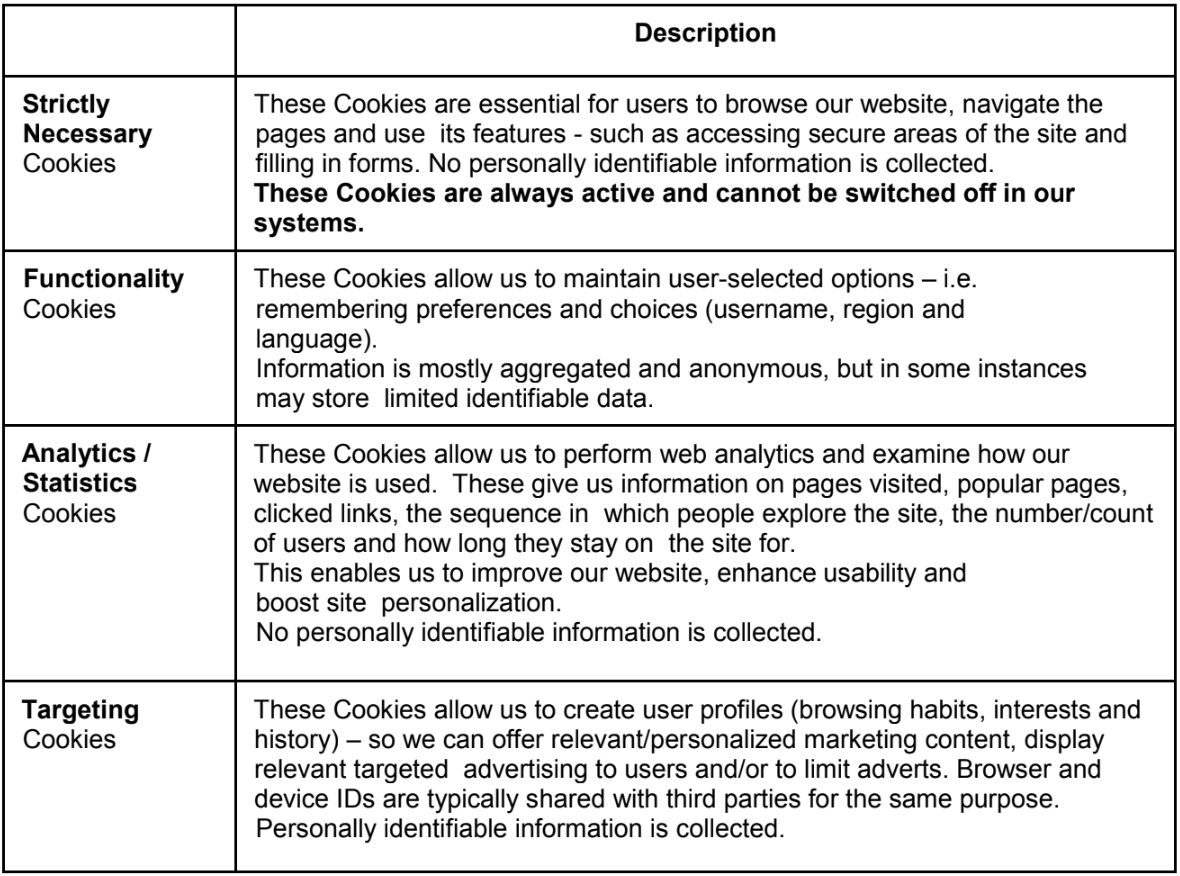MENU
Effective Date: April 7, 2023
The Antidote website may use Cookies, Web Beacons, Pixels, Tags (including server-to-server tag tracking such as Application Programming Interfaces ‘API’), and other similar online tracking technologies. We are required by law to obtain your consent for any online tracking technologies that we place other than those that are ‘Strictly Necessary’.
This page details what Cookies, Web Beacons, Pixels, Tags and other similar online tracking technologies we may collect, and how and why we use them. We will never share personally identifiable information with a third party, except where you give us explicit permission to do so. To the extent any personally identifiable information is collected through online tracking technologies, our Privacy Policy shall apply.
Cookies
Cookies are small pieces of data that are stored into your browser when you visit a website, which are stored there for a certain length of time. Cookies allow the website to customize itself to you.
Cookies cannot be executed as code or used to deliver viruses. Cookies cannot give us access to the stored information on your device.
The following table lists the Cookies categories we use;

Pixels
Pixels (also known as 'marketing pixels' or 'tracking pixels'); are short lines of HTML or JavaScript code, which are fired upon a particular website event/or visit. Pixels are used to track and gather website performance through behavioral information about visitors to the website. This then helps in sending custom (i.e. more helpful and interesting) ads to website visitors.
Pixels cannot give us access to the stored information on your device.
Tags
Tags (also known as 'content tags', ‘collaborative tags’ or ‘social tags‘); are also short lines of HTML or JavaScript code used for applying digital labels to online content. All Tags are a form of Pixel - generated after an event/or visit and resulting in a recording of that event/or visit in the form of a Cookie (N.B. but not all Pixels are Tags).
Tags may also include server-to-server tracking (such as Application Programming Interfaces ‘API’) through Google, social media - not limited to Twitter, Tik Tok, Meta (Facebook, Instagram), plus other advertising partners. Tags facilitate searching functionality, plus associations/linking of related content. Tags cannot give us access to the stored information on your device.
With the exception of ‘Strictly Necessary’ Cookies, you can change your preferences by clicking on the Cookie banner when prompted at each visit to our website. Note that you may have to manually adjust your preferences every time you visit our site - and you must refresh your page for your settings to take effect.
Yes, most major web browsers will allow you to refuse non-essential tracking by blocking them from being stored - or prompt you on an individual basis when a website wants to store a tracker. Note that you may have to manually adjust your preferences every time you visit our site - and you must refresh your page for your settings to take effect. Please also note that blocking tracking may adversely impact some functionality on our site (e.g. the ability to register and apply for a clinical trial).
Yes, this can be achieved by clearing the browsing history of your browser. Note that deleting tracking will impact some functionality e.g. it may log you out of our site.
For web browser-specific guidance, please visit:
Some content or applications, including advertisements, on the Site are served by third parties, including advertisers, ad networks and servers, content providers and application providers. These third parties may use Cookies (alone or in conjunction with other online tracking technologies) to collect information about you when you use our website. The information they collect may be associated with your personal information such as IP address, domain name, search criteria, date and time of page requests, referring website (where applicable) and your online activities over time and across different websites and other online services. They may use this information to provide you with interest-based (behavioral) advertising or other targeted content.
We do not control these third parties’ online tracking technologies or how they may be used – but you can control your preferences, block and delete third-party tracking as described in this policy.
If you have any questions about an advertisement or other targeted content, you should contact the responsible provider directly.
For location-specific consumer advice, please visit: